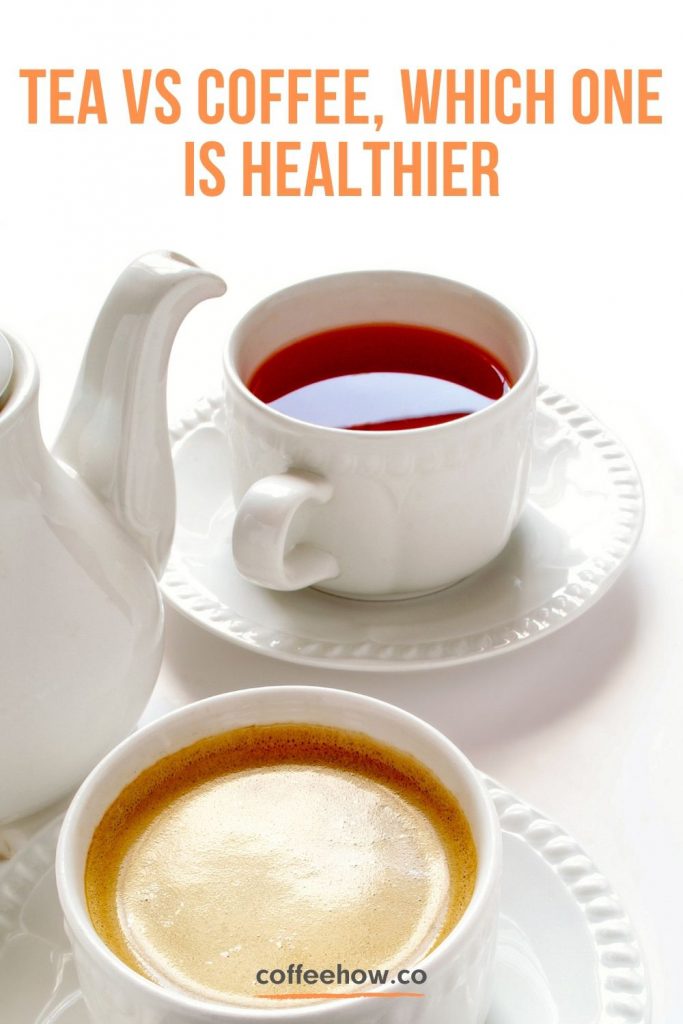An old debate “Espresso vs coffee.” This title reminds me of those old sci-fi movies…
Tea and Coffee are two types of beverages that are enjoyed by billions of people all around the world. These drinks are all-natural and they offer several health benefits. Tea and Coffee can be consumed during the morning or at night after a meal or even at any time in between meals. Some people could get addicted to these drinks. For others, they may just want to drink these drinks to boost their energy levels, especially if they work behind a desk for most of the day.
There is a lot of debate over whether coffee or tea is healthier. It all comes down to what’s in your cup. The benefits of tea and coffee are not that different from each other. Both beverages can provide you with a good amount of antioxidants, which is one of the healthiest things you can consume. They have also been said to reduce the risk for certain types of cancers, including breast and colon cancer.
Tea vs coffee, which one is healthier? And, what’s the difference between tea and coffee? This article will give you an in-depth answer to these questions!

Coffee is one of the most popular beverages around the world. Most people enjoy the taste, aroma, and even the caffeine boost it gives. But what other benefits does coffee have? Coffee has been shown to reduce the risk of Parkinson’s because it contains antioxidants and caffeine. Drinking coffee has also been linked to reducing the risk of developing type 2 diabetes, certain types of cancer, and Alzheimer’s disease. Coffee consumption is also linked to increasing overall life expectancy, due to its antioxidant effects.
The caffeine in coffee stimulates the central nervous system, increases blood flow, and may even help to fight depression by getting more blood flow to the brain. Regularly drinking coffee has even been shown to reduce the risk of suicide in men (but not women), likely due to the anti-depressant effects of caffeine. While there’s some evidence that drinking a lot of coffee can increase your risk for cardiovascular disease, the overall benefits for heart health greatly outweigh this risk for most people. A recent study showed that people who drink four or more cups per day have a 23% lower risk of heart disease than those who don’t drink coffee at all!
Tea offers a wide variety of health benefits, and drinking tea regularly has been linked to reducing the risk of several diseases and conditions. Tea may also reduce the risk for type 2 diabetes, improve dental health, and aid in weight loss by speeding up your metabolism. Tea is also a good source of fiber, which helps keep you feeling full longer. Tea can be enjoyed hot or cold. If you decide to drink it hot, you can add some lemon or honey for flavor. Green teas are often preferred cold because they are less bitter than black or oolong teas.
Tea is full of antioxidants that provide many health benefits to your body. The antioxidants in tea have been shown to help prevent heart disease, stroke, and certain types of cancers including colon, breast, and prostate cancer. Some tea such as matcha tea contains a class of plant compounds called catechins that function as natural antioxidants. According to the tea suppliers at www.kenkotea.com.au, green tea leaves are hand-picked and carefully graded to ensure freshness. Specific types of teas have also been shown to reduce the risk for other cancers, including ovarian cancer and breast cancer. Antioxidants help fight against heart disease, cancer, and even wrinkles! They also help your body in fighting free radicals which cause cell damage.
Black tea helps to boost your metabolism which can aid in weight loss. It also helps to curb appetite by slowing down the process in which your stomach empties after eating a meal. Tea is a diuretic that can promote weight loss by increasing metabolism through the elimination of excess water while simultaneously suppressing hunger pangs. Drinking tea can improve brain health because it contains caffeine which is an antioxidant. Tea may improve brain function and memory because it contains catechins that trigger the release of enzymes needed for memory formation.
Taste: The taste of coffee is more bitter than tea. It depends on your habits and how you drink them. Tea can be served with milk and sugar but most people drink coffee without milk or sugar.
Caffeine: The amount of caffeine in Tea and Coffee is different. Tea contains 40 mg per 8 ounces, and Coffee contains 100 mg per 8 ounces. So, tea has less caffeine than coffee.
Effects: Both contain caffeine but the effect of drinking tea is different from drinking coffee. Drinking too much coffee can cause insomnia, nervousness, and increased blood pressure while drinking too much tea can cause dizziness and heartburn problems.
Color: The color of both are dark brown but taste-wise they are different as I mentioned earlier. Plus in the case of coffee, it contains cream which increases its color whereas in the case of tea it doesn’t have any cream
Both tea and coffee have some health benefits and disadvantages. Tea is loaded with antioxidants, which help protect cells in your body from damage and even slow the aging process. Coffee, on the other hand, can raise your risk of heart disease and Type 2 diabetes.
Tea is a better choice than coffee if you’re looking for ways to improve your heart health. In addition to antioxidants, tea is also packed with flavonoids, which may help lower LDL cholesterol levels. However, both tea and coffee contain caffeine, which can raise your blood pressure and interfere with sleep.

Coffee is healthier than tea if you’re concerned about diabetes risk. Studies show that drinking three or more cups of coffee per day may increase your risk of developing Type 2 diabetes by up to 50 percent. Coffee also contains more caffeine than most teas do — about twice as much as black tea. That’s not a huge difference, but it might make a difference for someone who drinks a lot of either beverage each day.
